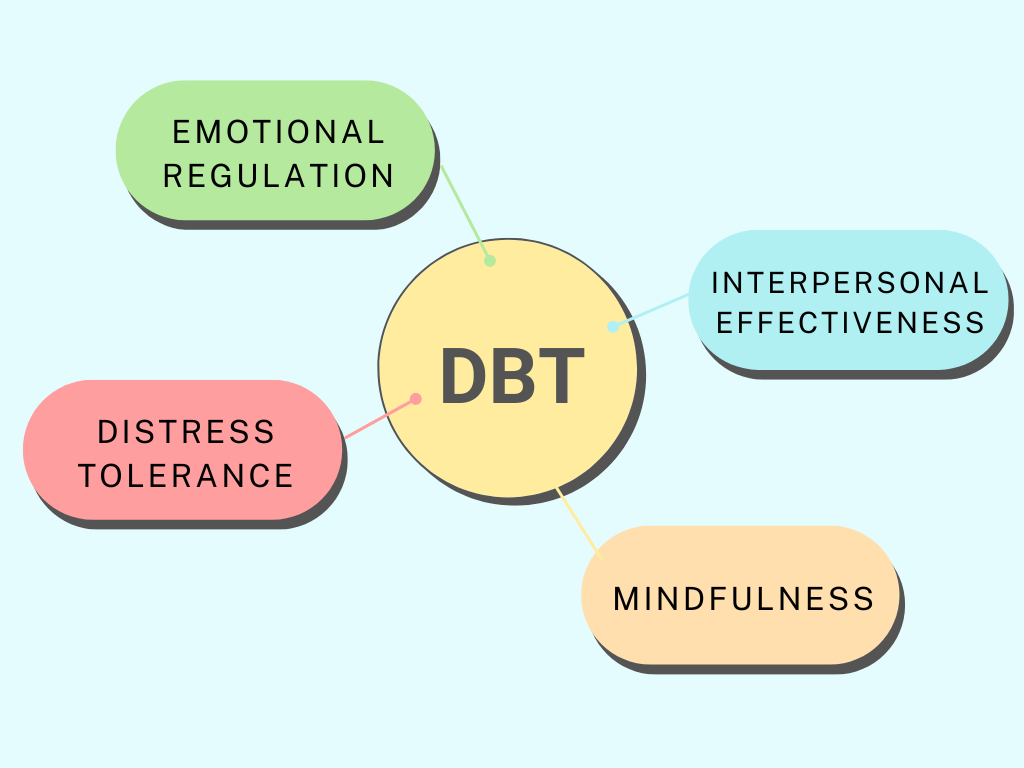Dialectical Behavioral Therapy (DBT) is a powerful psychotherapy approach that has gained popularity for its effectiveness in treating a range of mental health conditions. In this article, we’ll delve into what DBT is, how it works, and who can benefit from it.
What is Dialectical Behavioral Therapy (DBT)?
DBT is a form of cognitive-behavioral therapy (CBT) developed by Marsha M. Linehan in the late 1980s as a treatment for individuals with borderline personality disorder (BPD). It has been found to be incredibly beneficial and has since been applied to other mental health conditions, such as anxiety, depression, substance abuse, and eating disorders.
Dialectical philosophy, upon which DBT is based, emphasizes reasoning based on the synthesis of opposites. In the context of DBT, this means balancing acceptance and change. DBT combines standard CBT techniques for emotional regulation and reality testing with concepts of distress tolerance, acceptance, and mindful awareness. Central to it is, as Dr. Linehan would say, is crafting “a life worth living.”
The core principles of DBT include:
- Mindfulness: The practice of non-judgemental awareness of thoughts, emotions, and experiences in the present moment.
- Distress Tolerance: Learning skills to tolerate emotions in crisis situations, and doing so without making things worse.
- Emotional Regulation: Managing emotions by changing unwanted emotions and reducing our vulnerability to emotions.
- Interpersonal Effectiveness: Maintaining and improving relationships, increasing self respect in relationships, and having needs met.
One of the key components of DBT is a focus on validation. Therapists who use DBT validate their clients experiences and emotions. Validation can be particularly beneficial for individuals with a history of trauma or invalidation.
How Does Dialectical Behavioral Therapy (DBT) Work?
Standard outpatient form DBT is typically delivered in four major components:
- Individual Therapy: Individuals work one-on-one with a therapist to address specific issues and learn new coping skills.
- Group Skills Training: Individuals participate in group sessions where they learn and practice DBT skills together. These sessions often can cover a range of topics as they relate to the core principles.
- As Needed Consultation: Individuals have access to their therapist, sometimes via phone, for brief consultation between sessions to receive guidance and support in their application of DBT skills to real-life situations.
- Therapist Consultation Teams: A space for therapists and practitioners of DBT come together to consult and discuss cases.
Who Can Benefit from Dialectical Behavioral Therapy (DBT)?
DBT can be applied to a range of conditions. Below are some of the conditions for which DBT has been found to be beneficial.
- Borderline Personality Disorder (BPD): DBT was initially developed to treat BPD and is considered a gold standard treatment for BPD. Research shows DBT is highly effective in reducing self-harm and suicidal behaviors, and improving overall functioning in individuals with BPD.
- Substance Use Disorders (SUDs): DBT has been adapted to address the unique challenges faced by individuals with SUDs, helping them manage cravings, develop healthy coping mechanisms, and cope with triggers and stress.
- Eating Disorders: DBT skills, particularly those related to emotional regulation and distress tolerance, can be beneficial in the treatment of eating disorders, such as binge eating disorder and anorexia nervosa.
- Depression, Anxiety, and Other Mood Disorders: DBT has been found to be effective in reducing symptoms of anxiety and depression, particularly in individuals who struggle with emotional dysregulation and find emotion management challenging.
Conclusion
Dialectical Behavioral Therapy (DBT) is a highly effective and versatile treatment approach that provides benefits for individuals with a wide range of mental health conditions. It combines cognitive-behavioral techniques with the concepts of acceptance and change, as well as mindfulness, distress tolerance, emotional regulation, and interpersonal effectiveness. Whether you are struggling with borderline personality disorder, substance use disorder, a mood disorder, eating disorder, or some other mental health challenge, DBT offers practical skills and strategies to help you lead a more balanced and fulfilling life.
If you would like to learn more about DBT, reach out to the physicians at Natural Path Healthcare.

